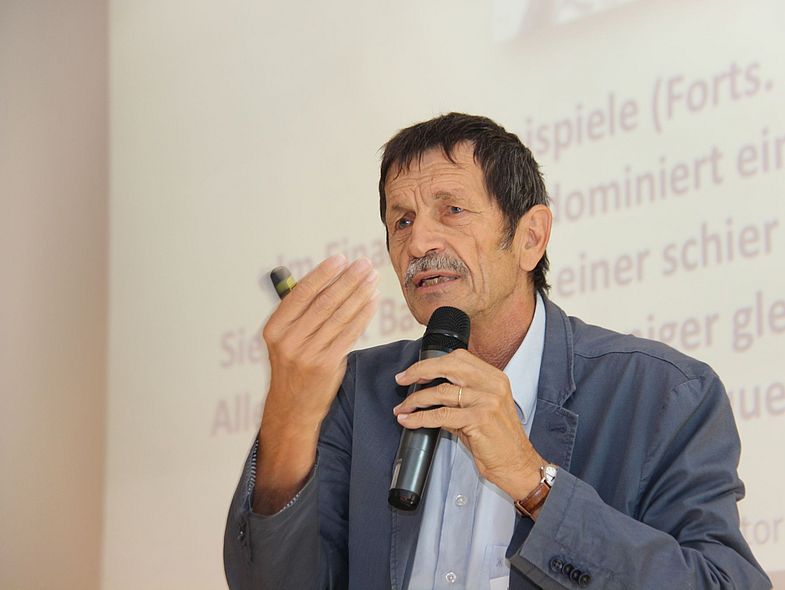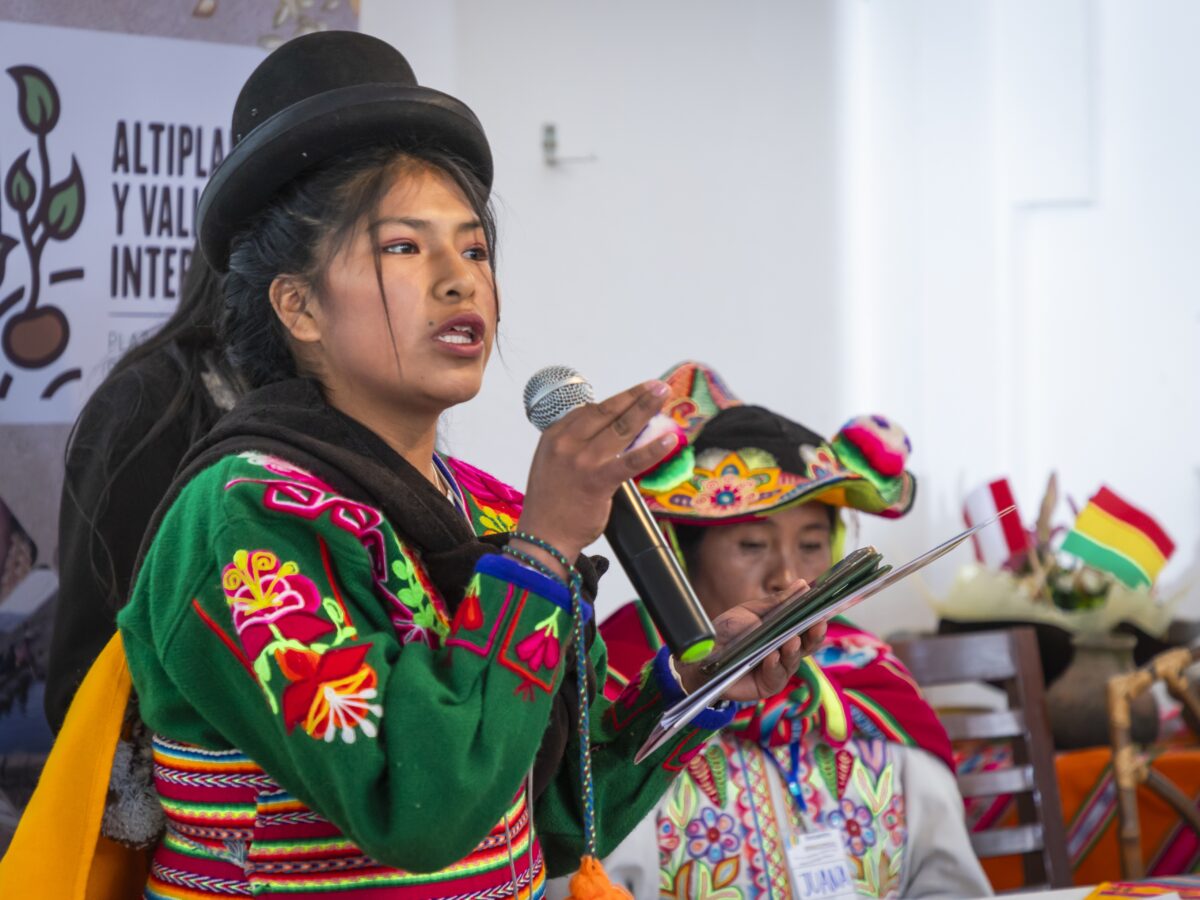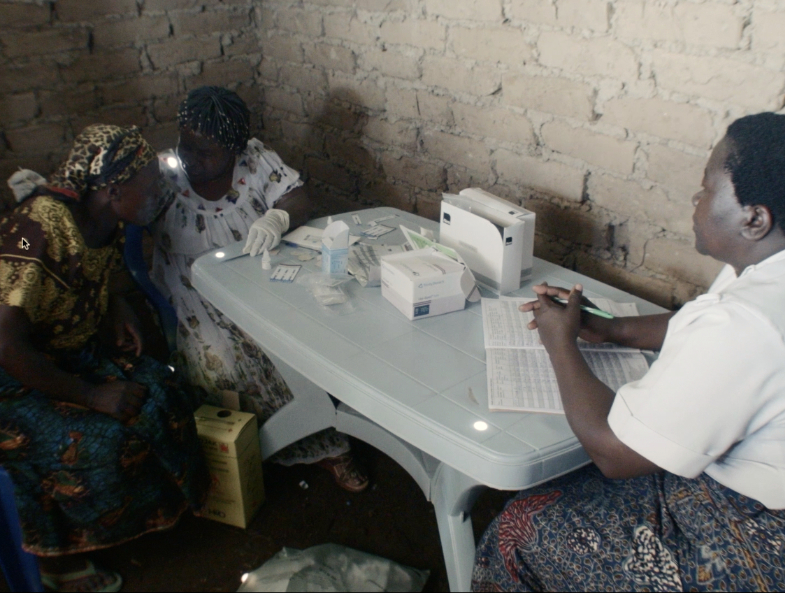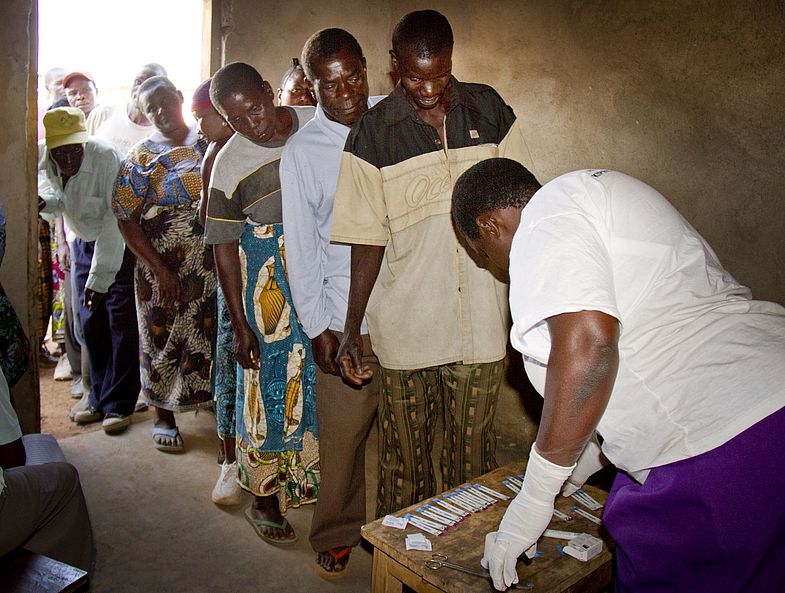Four keynote speeches offered different approaches to the topic. Afterwards, the participants were each given the opportunity to respond directly to what was offered - and they also took advantage of the opportunity. The questions and reactions showed how much the topic preoccupies them. Invited by the Parish Office for the Global Church of both Basel, together with the Evangelical Reformed Church Baselland and Mission 21, the aim of the conference was to offer answers to the central question of whether we can actually contribute to peace and what it takes for peace to grow.
The speakers provided answers to these questions from history and the present. Hans-Peter Mathys, professor emeritus of theology in Basel, showed that in the Old Testament the ideal was not peace, but order. Peace, "shalom," could be translated there as a life-promoting orderliness of the world.
Acting in a committed and socially engaged manner
For the Basel social scientist Ueli Mäder, "order" as a value is problematic for the present, since even dictatorships offer a certain order. He explained how economic and political developments since the 1980s have generated more and more conflicts and increased insecurity among the general population. The role of the churches, he said, must therefore be to appear committed and socially engaged, to address the people.
Former Red Cross delegate Karin Hofmann gave a vivid description of what it means to help in war situations. For example, how she spoke with prison guards and suspected torturers. Or how she was impressed by women in Chechnya who, despite their painful experiences, did not allow themselves to be drawn into the vortex of violence. Her conclusion from these experiences: Every effort, every "drop in the bucket" is worthwhile.
Realizing the potential for peace
Afterwards, study leader Detlef Lienau from Mission 21 briefly and succinctly analyzed how religions can exacerbate conflicts. At the beginning, it is usually about tangible interests. If these are linked to religious values, it is more difficult to end the conflict rationally. The solution lies in emphasizing the peaceful values that belong to every religion. This potential of religions for peace must be exploited much more.
Before the closing panel, Head of Communications Dario Brühlmann of Mission 21 presented the projects of the current campaign. Above all, he said, the Gurku Peace Village is a good example of how an initial private commitment can grow into a joint peace project. Under the motto "Peace grows with us", Brühlmann pointed out that this project could be promoted through actions in Switzerland.
The singer and speaker Sebastian Mattmüller also contributed to the success of the meeting. He recited passages from the novel "Heeresbericht": The author Edlef Köppen had told in 1930 with a polyphonic collage about the First World War.
Some of the participants would have liked to have had more tips for their own actions. Others were encouraged and motivated to work actively for more peace and justice with their own initiative, in the parish or privately.
Text and photo: Christoph Rácz






